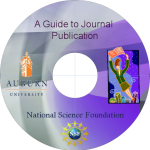

How to Be an Effective Reviewer
There are many reasons to engage the peer review process as a reviewer. First, it will make you a better author. Seeing a variety of other papers as they go through the review and revision process will provide first hand experience to improve your own papers. Second, you will become more in tuned with the emerging literature and research from around the world. Third, you will join the academic community for that journal (even if temporarily). The editorial board of any journal all started as reviewers. Fourth, it is part of your professional service duty as an author and researcher. The peer review process is only as good as we make it.
You will probably automatically become a reviewer once you are a published author. Reviewers are sought from authors who recently published in a given journal and from those whose works are cited in the paper under review. Otherwise, you may be asked by a peer (or advisor) who knows your own expertise and interests, or you might volunteer your reviewing services to one or a few well chosen journals.
You have certain obligations to fulfill as a reviewer.
The first is to be impartial and objective. This is a professional duty and each paper must be judged on its own merits only.
The second is to be timely. When you are asked to review a paper, a deadline or timeline will be specified. While this is rarely a hard deadline, adhering to it, or something close to it, is important. If you fail to review a paper on time (or ever), the editor is left in a bad position. S/he must find another reviewer quickly or go with fewer reviews than originally planned for. The primary reason why the peer reviewing process takes so long is that the editor must wait for the latest reviewer in order to move to the next step of processing.
The third is to do a good job. When you receive information about a paper to review, carefully look over the title and abstract to make sure you have the expertise and interest in the paper to do a good job. If you need more information (such as if the journal does not send you the abstract or if you would like to see the entire paper before deciding) don't hesitate to ask for it. Then accept or decline the review based on whether you can do a good job. If you decline it but know of another appropriate reviewer, feel free to recommend the reviewer to the editor (many editors will ask you this). Do not ignore a request for review - again, that delays the whole process and it is just plain rude. Say yes or no promptly. Then, you must be thorough. This takes time. You must read and digest the paper - technical content, organization, presentation, analysis and conclusions, references, appendices. You must consider your response and organize it into a review. You must give a recommendation - accept, minor revisions, major revisions, reject, re-review or not. You must give the rationale for your recommendation. Most reviews span 2 or more typed pages. You can include questions, suggestions, corrections, reference additions, etc. regarding both the technical content and the writing/organization/presentation. It is not your responsibility to serve as a proof reader or English editor. If the writing is poor, say so. If the writing contains typos or mistakes, you may point out specific ones or just say that it needs another thorough edit. If the English is so poor as to obscure meaning (and this does occur), then send the paper back with that message. Some reviewers like to return a marked copy of the paper along with the written report. Feel free to do this if it makes your review more helpful or if it is easier for you. Of course, you can compliment well done parts of the paper - frankly, this is not often done, but it is always appreciated by authors.
After you submit the review, keep a copy. Even if you recommend immediate acceptance or rejection, other reviewers and / or the editor may not agree. You might get a revised paper back for re-review that you were not expecting. If you return it for revisions, then often you will get the revised paper back for re-review, but it might be far into the future. Depending on the revisions needed, you might see the paper again in three months or in one year. Second reviews usually go quicker - you should have a list of how the authors have responded to original suggestions (since this is blind, the authors will sort this by reviewer 1, reviewer 2, etc. and your editor should either only give you the response to your review or tell you which reviewer number you were). You can check this list and then read the paper with those specifics in mind. Your re-review will follow the same format as your original review, and again, keep a copy because once in a while third reviews are done.
In summary, being a reviewer is an important task that requires commitment and follow through. As you become a more seasoned reviewer, you will find yourself becoming a better author. You will also become more comfortable with the peer review system, seeing it from the "inside."
